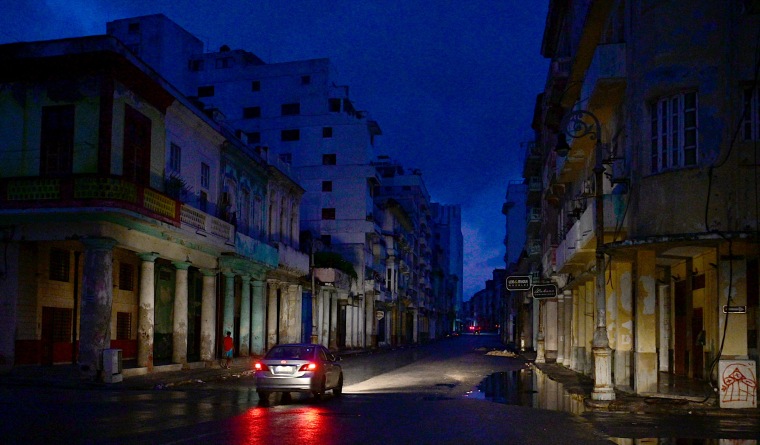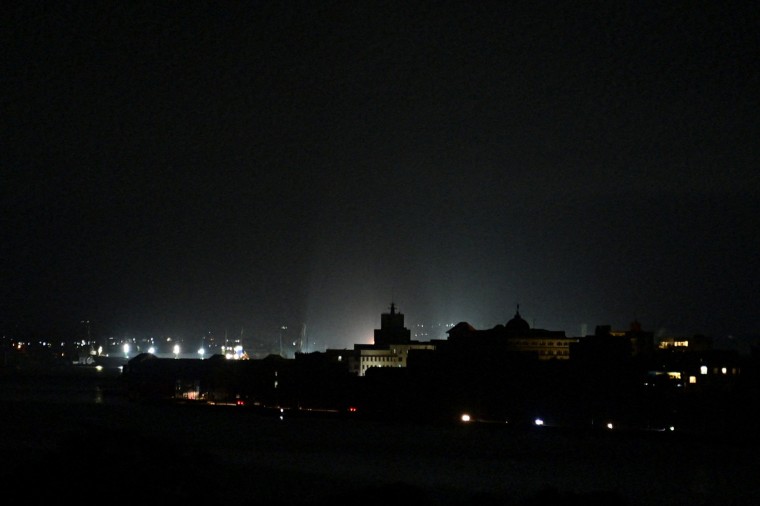HAVANA — Significant strides have been achieved in restoring electricity throughout Cuba, yet a large portion of the island still experienced blackouts on Saturday following a power grid failure that occurred twice within a 24-hour period.
The initial outage swept across Cuba around 11 a.m. on Friday after the Antonio Guiteras thermoelectric power plant, which is the island’s largest energy facility, failed. This resulted in darkness for nearly all of Cuba’s 10 million inhabitants.
Recovery efforts were underway when, unexpectedly, another grid failure took place around 6:15 a.m. Saturday.
As repairs progressed, Hurricane Oscar was reported off the Bahamas, leading the Cuban government to issue a hurricane alert for Guantanamo, Holguin, and Las Tunas provinces located in the eastern region of the island.
The streets of Havana were eerily quiet on Saturday, with very few vehicles seen. Traffic signals were out of service, and residents searched for food as much of their refrigerated items had spoiled. Only a handful of stores remained operational, with some state-run shops lacking electricity, while certain private establishments utilized generators.
In the Vedado district, known for its affluence, the government established an open-air market in a local park on Saturday featuring agricultural products including root vegetables, rice, and some greens.
Residents of Old Havana voiced their frustrations over the ongoing crisis.
“This is an unbearable situation, and I hope it gets resolved quickly,” said Alexia de la Cruz, standing outside her home. “Things have become very critical.”
“The circumstances are intolerable. It has reached a boiling point,” added resident Luis Utoria.
Some individuals suggested political solutions to Cuba’s persistent electricity issues.
“This issue can be addressed if we foster good relations and make agreements with our nearest neighbor (the United States) without making concessions,” remarked a 74-year-old man who preferred to remain anonymous.
Reuters observed a small group of demonstrators banging pots and blocking roads in Marianao, located on the outskirts of the capital, on Saturday. They dispersed upon the arrival of law enforcement.
Power outages have been a longstanding problem in Cuba, worsening in recent months.
Prior to the Friday blackout, the government had attempted to prevent a total shutdown by closing schools and reducing the number of state employees on-site to conserve energy, yet these measures were inadequate.
Havana’s aging infrastructure requires consistent maintenance, and the government often attributes the difficulty in obtaining necessary parts to the decades-long U.S. embargo against Cuba.

The government also cites rising energy demand and a fuel shortage necessary for factory operations as contributing factors to the frequent blackouts. In several provinces outside of Havana, residents have been enduring power cuts lasting up to 20 hours consecutively.
During a state news broadcast on Friday night, President Miguel Diaz-Canel assured that efforts would continue until power was fully restored. He blamed the U.S. embargo for Cuba’s struggle to secure essential fuel and foreign currency, warning that sporadic outages would persist even after power was reinstated.
Cuba’s Foreign Minister Bruno Rodriguez reiterated this stance on Saturday via social media, stating that the damage caused by the embargo over 18 days equated to “the annual expenses for maintaining the nation’s electrical system.” He proclaimed that power outages would cease once the embargo is lifted, declaring, “The U.S. government could support the Cuban people if it chose to…”

Cuba is currently grappling with an economic crisis exacerbated by stringent U.S. sanctions imposed during former President Donald Trump’s tenure, along with the pandemic’s severe toll on the island’s tourism sector, a vital source of government revenue.
The state-controlled economy largely depends on imports, and a shortage of foreign currency has resulted in Cubans facing extensive shortages of food, medication, water, and fuel.
Oil supplies have drastically decreased as Venezuela, Cuba’s ally and primary oil provider, has curtailed its exports. Other past oil suppliers, including Russia and Mexico, are also scaling back shipments.
The economic challenges in Cuba have triggered an increase in emigration, with over 1 million individuals, or 10% of the country’s population, having left between 2022 and 2023, according to the National Statistics Institute.
This report was contributed by Orlando Matos from Havana and Carmen Cecin from Miami.


